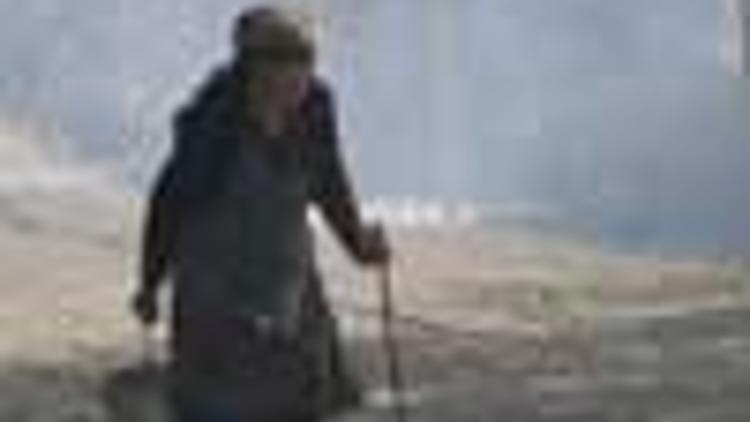Georgia says Russia troops blocking refugees' return to their homes
Güncelleme Tarihi:

Russian troops deep inside Georgian territory are stopping thousands of refugees from returning to their homes, a Georgian official said on Saturday.
Russian soldiers were still manning checkpoints in Georgia and patrolling a Black Sea port even after Moscow pulled back much of the force it deployed three weeks ago to crush Georgia's attempt to take back separatist province South Ossetia.
European Union leaders are to meet in Brussels on Monday to debate the bloc's response to Russia's military intervention and its decision to recognize South Ossetia and Georgia's other breakaway region, Abkhazia, as independent states.
Russian President Dmitry Medvedev spoke with British Prime Minister Gordon Brown by telephone on Saturday to defend Moscow's recognition of the regions and insist it was complying with a ceasefire agreement, the Kremlin said.
Russia has ignored calls by the United States and European powers to withdraw from Georgia, including troops deployed in a "buffer zone" bordering South Ossetia and Abkhazia that Moscow says are needed to prevent further attacks by Georgia.
The governor of Gori, a Georgian city occupied by Russian forces during the brief conflict, said Russian soldiers still occupied nearby Georgian villages.
"The Russians have checkpoints and we still cannot bring these people back home. The threat of paramilitary, irregulars, looting and robbing is still very high," Governor Lado Vardzelashvili said.
"Apparently the Russian military are not willing to prevent these kinds of cases."
Vardzelashvili said 28,000 people from villages in the Gori region still could not go home. The number could not be independently verified but Human Rights Watch has urged Russia to investigate reports of burning and looting of Georgian villages by Ossetian militias.
"U.S. PROVOKED CONFLICT"
Two U.S. navy ships vessels, meanwhile, have already delivered aid to Georgian ports and a third, the navy command ship USS Mount Whitney, is en route with more.
Russia views with suspicion the use of U.S. warships to deliver aid to Georgia and says it is worried by the build-up of alliance navy ships in the Black Sea, where the Russian navy has traditionally been dominant.
Russian Prime Minister Vladimir Putin said on Friday U.S. military advisers were involved in the conflict and accused the White House of provoking the crisis to help Republicans win the November U.S. presidential election.
A senior U.S. diplomat in the region has said Washington pleaded with Tbilisi to refrain from attacking the South Ossetian capital of Tskhinvali and stay out of the conflict.
German and Russian foreign ministers discussed Georgia on Saturday, and agreed on the need to prevent the crisis being used to "escalate tensions in Europe through speculation over non-existent threats to other former Soviet republics," the Interfax news agency quoted the Foreign Ministry as saying.
That was a reference to comments last week by French Foreign Minister Bernard Kouchner who said Russia might have objectives beyond Georgia, "in particular the Crimea, Ukraine and Moldova."
Diplomats have said EU nations were reluctant to impose sanctions and had received signals from the Kremlin that it would retaliate.
The two sides on Friday pulled back from confrontation, Moscow urging the EU not to rush into punitive action and France saying now was not the time for sanctions.
Georgian Deputy Prime Minister Georgy Baramidze told a news conference on Saturday in Slovenia his country is looking for support for Georgia from the EU and a strong message to Russia.
"We want the European Union to be united and react to this situation adequately. It is clear now that this is not only about Georgia, it is about Europe's security," he said.
"We don't suggest a complete isolation of Russia but on the other hand, appeasement policy will be even more dangerous."

